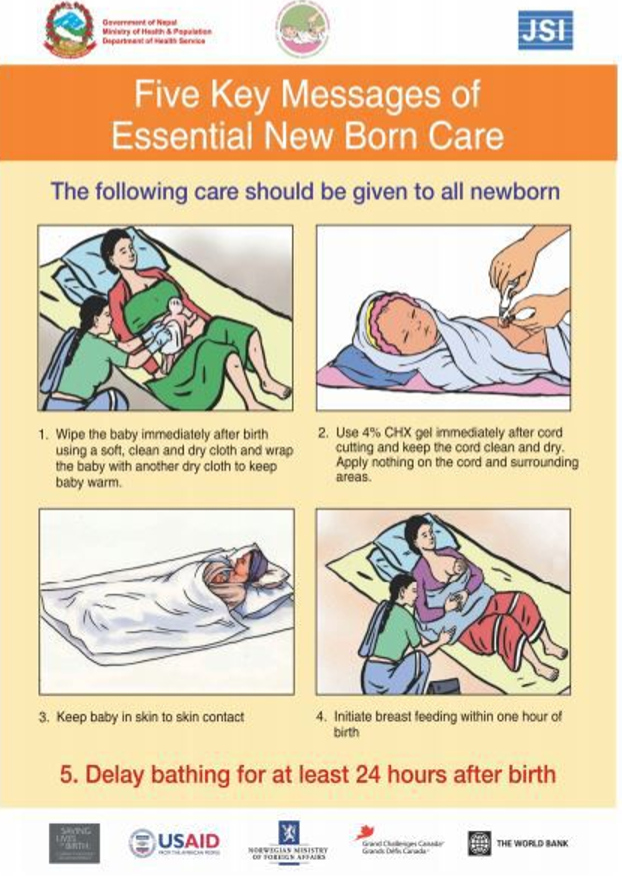
A Comprehensive Guide to Postpartum Baby Care
The arrival of a newborn baby is a momentous occasion filled with joy and excitement. However, it also brings with it a host of responsibilities, including the proper care of your precious little one. This comprehensive guide will provide you with all the essential information you need to ensure your baby’s well-being and thriving development in the postpartum period.
Immediate Postpartum Care
- Skin-to-Skin Contact: After birth, it is crucial to establish immediate skin-to-skin contact with your baby. This promotes bonding, regulates their temperature, and facilitates breastfeeding.
- Initial Examination: The medical team will perform a thorough examination of your baby to assess their overall health and identify any potential issues.
- Apgar Score: This test is conducted at one and five minutes after birth to evaluate the baby’s heart rate, breathing, muscle tone, reflexes, and color.
- Vitamin K Injection: This injection is administered to prevent vitamin K deficiency, which can lead to bleeding disorders.
- Eye Ointment: Antibiotic eye ointment is applied to prevent eye infections.
- Heel Prick Test: A small blood sample is taken from the baby’s heel to screen for genetic disorders.
Feeding
- Breastfeeding: Breast milk is the ideal nutrition for newborns, providing essential nutrients and antibodies. If you choose to breastfeed, seek support from a lactation consultant or healthcare professional to ensure proper latch and milk production.
- Formula Feeding: If breastfeeding is not an option, formula can provide adequate nutrition for your baby. Follow the instructions on the formula container carefully and consult with your healthcare provider for guidance.
- Feeding Frequency: Newborns typically feed every 2-3 hours, or more often if they are breastfeeding. As they grow, their feeding frequency will gradually decrease.
Diapering
- Diaper Changes: Change your baby’s diaper frequently, especially after feedings and bowel movements. Use gentle wipes and avoid harsh chemicals.
- Diaper Rash: Diaper rash is a common issue in newborns. Keep the diaper area clean and dry, and apply a diaper cream to prevent or treat rashes.
- Umbilical Cord Care: The umbilical cord stump will gradually dry up and fall off within 1-2 weeks. Keep the area clean and dry, and avoid pulling or tugging on the cord.
Bathing
- Sponge Baths: Sponge baths are recommended for newborns until the umbilical cord falls off. Use warm water and a soft washcloth to gently clean your baby’s skin.
- Tub Baths: Once the umbilical cord has fallen off, you can give your baby tub baths. Use lukewarm water and a mild baby soap.
- Bathing Frequency: Newborns do not need to be bathed daily. 2-3 baths per week are sufficient.
Sleep
- Sleep Patterns: Newborns sleep a lot, but their sleep patterns are often irregular. They may wake up frequently for feedings or diaper changes.
- Safe Sleep Practices: Always place your baby on their back to sleep, in a firm, flat crib with no loose bedding or toys.
- Swaddling: Swaddling can help soothe newborns and promote sleep. Use a soft, breathable blanket and wrap your baby snugly but not too tightly.
Health Monitoring
- Temperature: Monitor your baby’s temperature regularly, especially if they seem unwell. A normal temperature range is between 97.6°F (36.4°C) and 100.4°F (38°C).
- Breathing: Observe your baby’s breathing rate and pattern. Normal breathing rates range from 30-60 breaths per minute.
- Jaundice: Jaundice is a common condition in newborns, caused by a buildup of bilirubin. It usually resolves on its own within a few weeks.
- Colic: Colic is a condition characterized by excessive crying and fussiness. It is often caused by gas or immature digestive systems.
When to Seek Medical Attention
It is important to seek medical attention promptly if you notice any of the following signs or symptoms in your baby:
- Fever over 100.4°F (38°C)
- Difficulty breathing or rapid breathing
- Persistent crying or inconsolability
- Vomiting or diarrhea
- Jaundice that worsens or does not resolve
- Skin rashes or infections
- Lethargy or decreased activity
Additional Tips for Postpartum Baby Care
- Bonding: Spend plenty of time cuddling, talking, and singing to your baby. This promotes emotional development and attachment.
- Massage: Gentle massage can soothe and relax your baby.
- Tummy Time: Place your baby on their tummy for short periods of time to strengthen their neck and back muscles.
- Sensory Stimulation: Provide your baby with age-appropriate toys and activities to stimulate their senses and cognitive development.
- Support System: Seek support from family, friends, or a postpartum doula to help with baby care and your own well-being.
Conclusion
Caring for a newborn baby is a rewarding yet challenging experience. By following these comprehensive guidelines, you can ensure your baby’s health, well-being, and thriving development. Remember to trust your instincts and seek professional guidance whenever necessary. With patience, love, and a commitment to providing the best possible care, you will navigate this special time with confidence and joy.
